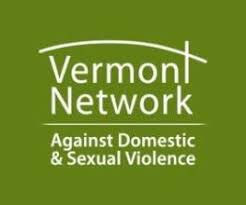Help for those in domestic or sexual violence situations during pandemic
 Self-isolation does not mean that you are alone: resources are available to all who need them
Self-isolation does not mean that you are alone: resources are available to all who need them
The Vermont State Police, Vermont Attorney General’s Office and the Vermont Network Against Domestic and Sexual Violence join with other law-enforcement agencies and advocacy organizations to acknowledge the unique and difficult challenges facing people who are living in abusive and violent circumstances during the COVID-19 pandemic.
“While we continue to take precautions around COVID-19 to make our communities safer for everyone, it is important for Vermonters to remember that not every home situation is safe,” said Attorney General T.J. Donovan. “Self-isolation does not mean that you are alone. Local programs and law enforcement agencies are here to help. I encourage all Vermonters who are worried about having to self-isolate in a dangerous home situation to reach out.”
Amid stay-at-home orders, social distancing, quarantines and mandates to self-isolate, survivors can find themselves in closer contact than ever with their abusers. However, law enforcement, state government and advocacy networks stand ready to assist survivors, even as some operations are being modified to reduce the risk of virus transmission.
“Despite many challenges and alterations in how services are provided, dedicated advocates at Vermont’s domestic and sexual violence organizations are able to answer hotline calls, offer modified shelter, and certainly talk to survivors about safety planning and other issues,” said Karen Tronsgard-Scott, executive director of the Vermont Network.
The details around how domestic and sexual violence organizations are handling this situation are as follows:
- Staff are mostly working remotely, answering hotline calls 24/7 and supporting survivors.
- Shelters are open and implementing the procedural guidance offered by the State of Vermont Office on Economic Opportunity. This includes regular sanitation of shelter spaces, promoting handwashing and social isolation, and responding quickly in the event that a shelter resident feels ill.
- Staff are attending to the needs of survivors housed in shelters by phone with daily in-person contact by one staff member.
- The Vermont Network is working with service providers to ensure they have the most up-to-date information about staying safe and providing services, and to accurately represent what is happening locally in conversations at the state and national level.
There are numerous resources available for survivors at the local and national level. They include:
- Vermont Network
- Vermont Domestic Violence Hotline: (800) 228-7395.
- Vermont Sexual Violence Hotline: (800) 489-7273.
- National Domestic Violence Hotline: (800) 799-7233.
- If you’re unable to speak safely: Log onto the hotline, or text LOVEIS to 22522.
- If you are in an emergency situation: Call 911.
“We want survivors to know that we see you. We’re here. We’re ready to help,” said Col. Matthew T. Birmingham, director of the Vermont State Police. “If you are in an abusive or violent situation, you should know that the state police, your local law-enforcement agency and the Vermont Judiciary will be there for you when you need them.”
